Gift of Parthax on PC
Gift of Parthax offers a difficult question to answer when reflecting upon arena-brawler game design: how simple is too simple? The title, masterminded by Foldergeist Studios, relies upon its charming visuals and a tastefully antiquated soundtrack to carry its weight, with much of the core mechanics falling into genre tautology. When Gift of Parthax clicks, its toolkit invokes memories of roguelike greats such as The Binding of Isaac, yet at its worse, the title feels like mere repetition. By providing a streamlined, simple yet evolving playstyle, Gift of Parthax has plenty there for players to enjoy, but not quite enough to adequately differentiate itself from its peers.
At its core, Gift of Parthax is a series of themed challenges that escalate in difficulty. Often, players will have to choose from an extensive list of spells to suit each situation, with runes available for purchase that augment or change a spell’s playstyle. Spells fall into simple categories: single target, AoE, summoning, and trap spells. Special abilities are earned at the end of each season, following the theme of the final boss. Runes are more interesting, providing unique buffs, playstyle changes, and enemy debuffs.
Runes fall into six categories: Fire, Earth, Strike, Projectile, Spawning, and Trap. Each spell has four slots for runes to affect, leading to certain spells changing their strengths and weaknesses significantly. Often, especially during the latter half of the game, rune loadout and optimization was essential to survival, especially during the final, claustrophobic waves of enemies.
Spells themselves are earned from fighting in the arena, with each spell rewarded usually with each stage. At the start, several different types of spells are thrown at the player, who can equip four at a time, along with a special ability achieved from the end boss of each arena season. However, unlike runes, there is little incentive to change spells around. Since runes greatly affect a spell’s properties, the allure of only keeping four familiar spells is too great to resist. There is little reason to experiment with spells, which the enemy design, as joyful as it is, should have enforced to a greater extent.
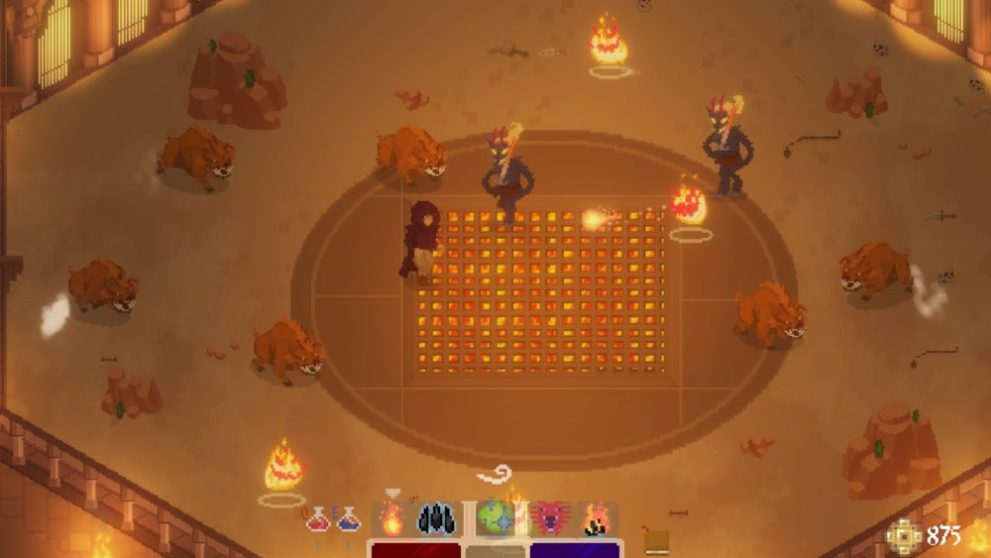
Combat itself meanders between addictively rewarding, and merely serviceable. Gift of the Parthax is at is best when the arena is loaded with enemies, forcing players to time dodges, spell changes, and enemy priorities on-the-fly. Certain enemies, however, do nothing but slow down play. The most egregious example is perhaps the plant enemy on Spring, which moves back into the ground periodically and only pops up when in close proximity. Other enemies have similar design pitfalls which slow down play in a contrived fashion, instead of facilitating the fast-paced combat the title exceeds at. For the most part, however, enemies and combat in Gift of Parthax is decent but never ascends to dizzying heights. There is no reason to play this title over other arena brawlers or roguelikes on gameplay alone, which is a strong negative in a genre that demands staunch replayability and time investments.
Story-wise, Gift of Parthax does not take many risks, but the narrative is not the priority in this genre. Much of the story’s details are told in an exposition-heavy opening via a book, detailing the game’s protagonist, Arif, and his role in a civil war between magic and non-magic users. Set in a typical Western fantasy world, players assume the role of Arif as he enters an infamous arena to save his friend, Veleus, who he once tried to escape the civil war with. During their escape, both were arrested, with Arif sentenced to jail, and Veleus sentenced to fight in the arena, in which he suffers an almost-mortal wound. Arif breaks out of jail and enters the arena to achieve victory, in which he can use the arena’s reward to absolve himself and Veleus of their crimes.
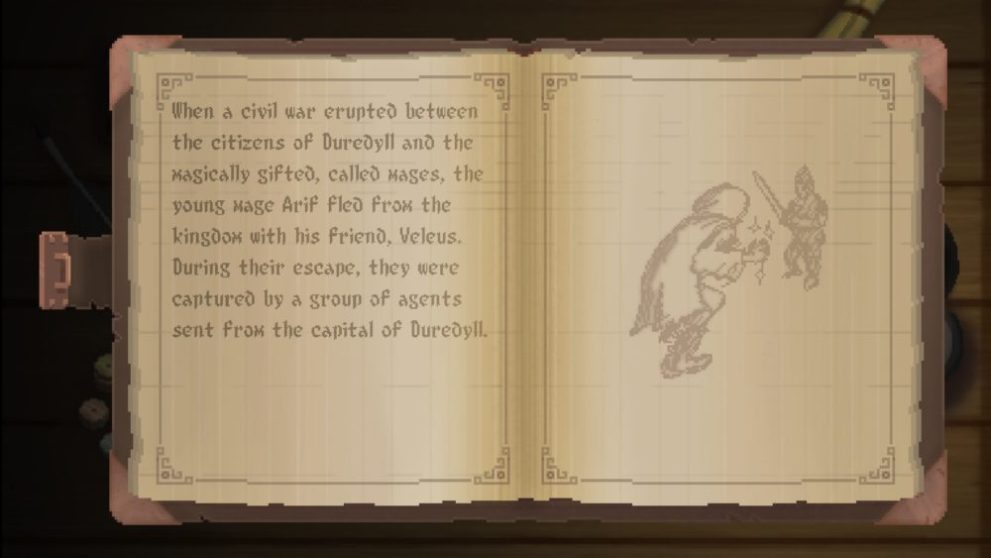
No real surprises are thrown players way in terms of plot twists. However, props can be given to Gift of Parthax by how it nails the fantastical aesthetic, especially in its character and enemy designs. The narrative is merely there as background noise to prop up the project’s stellar art direction; players really feel as though they’re in some mystical, infamous fantastical arena, complete with surprising artistic choices.
Despite mechanical issues, Gift of Parthax is loaded with charm. Focusing its play around season-inspired arena challenges, the game’s pixel art style and animation tread the line between cutesy appeal and vintage reverence. The soundtrack, too, is designed with more than a few nods to the title’s inspirations, decorating the calmer moments with calm vibes and the more intense arena battles with added vigor. Spells, which form the basis of Gift of Parthax’s combat, are easy to differentiate between, offering a weighty and often creative array of combat options. Spells such as meteor strike or the conjured allies are particular highlights, loaded with color and personality despite the title’s technologically-limited artistic scope.
Gift of Parthax is permeated with a sense of immediacy, forgoing extensive tutorials or lore-building in favor of throwing players into the gameplay. However, whilst gaming could do with more of this kind of attitude, Gift of Parthax ends up rushing through at the expense of ensuring players learn mechanics properly. The biggest example of this is the addition of special abilities from bosses, which, when initially gained, goes unexplained in how to activate them or their proper place in skirmishes. Players can find items in the game to acquire “knowledge,” too, yet it is never explained that this knowledge equates to experience points. Other small issues like rune-stacking, increased mana cost from certain types of runes, plus difficulty in finding out stat weights hinder the game’s potential.
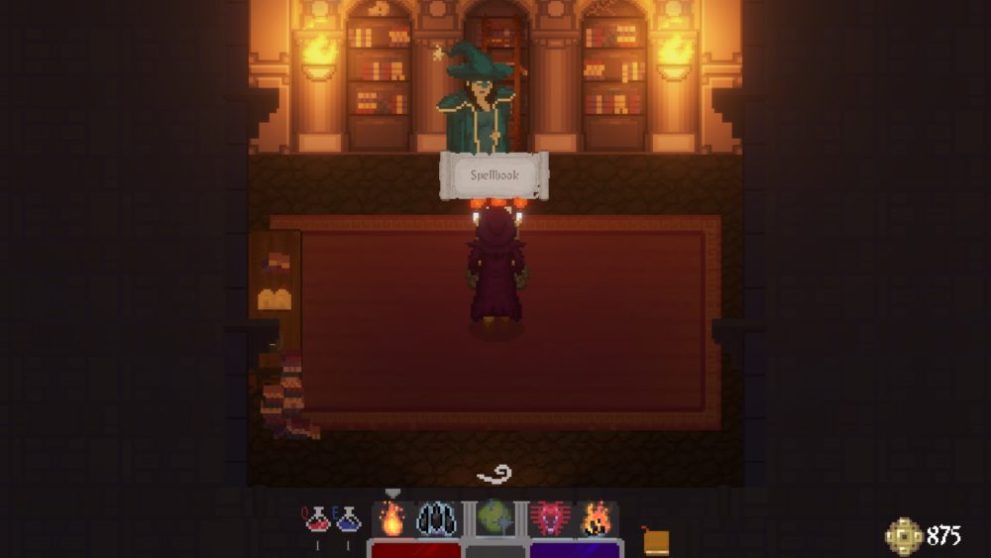
Generally, Gift of Parthax lacks serious polish in places, lagging significantly, having too many dodgy hitboxes, as well as an insane difficulty spike in Winter. The difficulty curve is perhaps too easy for Spring and Summer, hits its stride in Fall, before spiking in an unnatural, frustrating fashion. If systems such as knowledge equating to experience points, stat weights, and how to properly utilize runes around mana cost were made more explicit, then perhaps the difficulty spike would not have felt so punishing. These issues could have been ironed out with more extensive testing and a few more months in the oven, yet they are symptomatic now of a game that was not quite ready for release.
Overall, Gift of Parthax is a serviceable, if dime-a-dozen arena-brawler. Foundationally-speaking, there is a title here that desperately wants to differentiate itself from its peers, yet the lack of polish, short-sighted design choices, and general lack of scope scuppers all potential. Major fans of the genre can find a lot to enjoy here for the price of admission, yet genre tourists or newbies may not find a lot to enjoy with the game. For an indie title, Gift of Parthax shows staggering focus on times, but these moments of tense focus and refinement make the game’s pitfalls even more glaring.
Score: 2.5/5 – Poor
Pros
| Cons
|

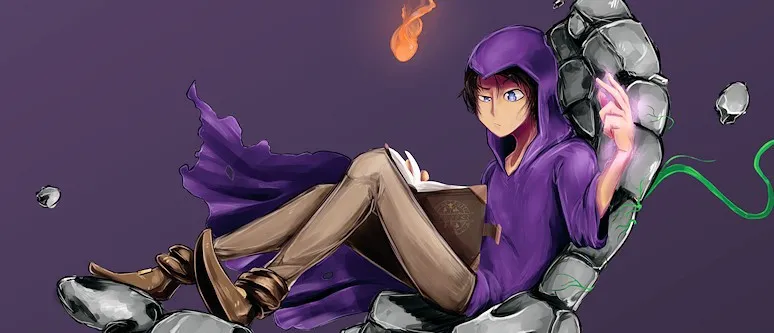










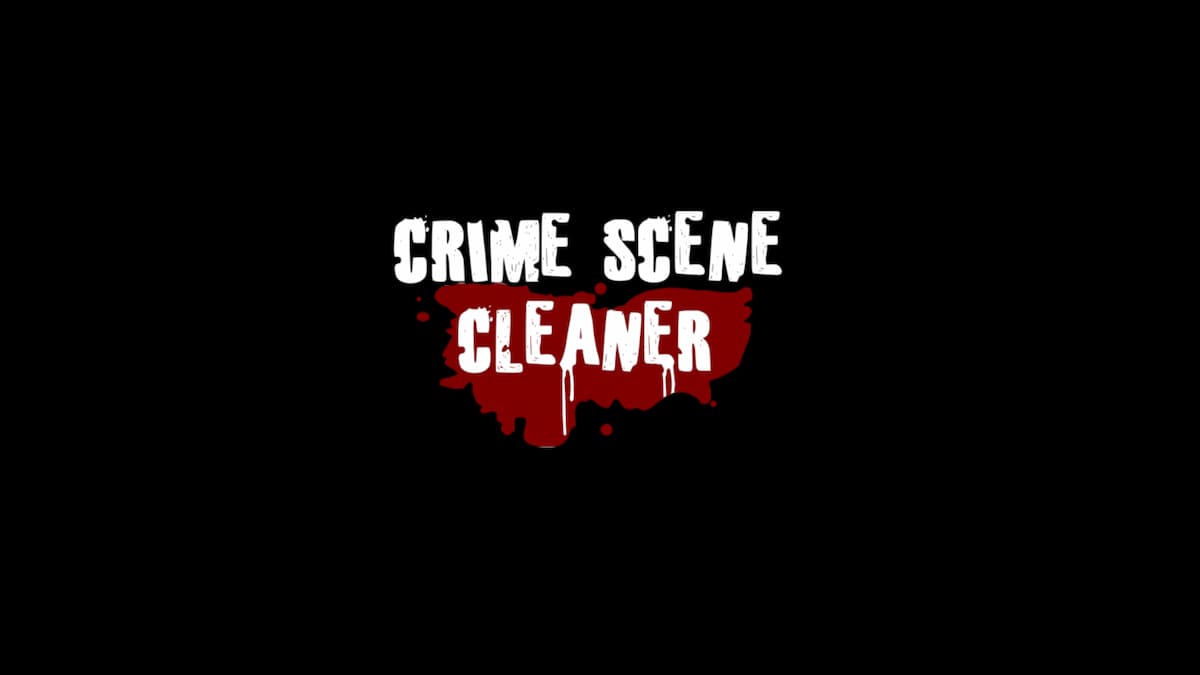
Updated: Oct 2, 2018 09:32 am